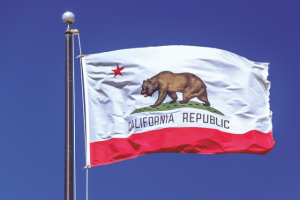FISMA vs. FedRAMP: What’s the Difference
FISMA and FedRAMP and federal cybersecurity standards designed to protect sensitive data. Understand the differences between FISMA vs. FedRAMP including key requirements and who needs to comply with each standard.
What is FISMA?
The Federal Information Security Modernization Act (FISMA) is a law that establishes a framework for protecting federal government information and operations from cyber threats. FISMA is part of the E-Government Act that was passed in 2002. It requires federal agencies and their contractors to implement and maintain security measures to protect sensitive data.
Key FISMA requirements:
- Maintain an inventory of all information systems used or operated by the agency or by contractors on their behalf.
- Categorize data and information systems based on risk and impact levels utilizing FIPS 199 to ensure systems have the appropriate level of security.
- Select and implement the NIST 800-53 controls relevant to your organization, systems, and impact level.
- Conduct regular risk assessments and vulnerability scans to identify threats to systems and data.
- Develop and maintain a System Security Plan (SSP) that covers the implementation of security controls and policies.
- Conduct a security authorization process that includes assessment of controls, risk determination, and authorization decisions.
- Continually assess and monitor the effectiveness of their security controls and systems.
- Design and implement an incident response plan. Incidents should be reported to CISA (Cybersecurity and Infrastructure Security Agency).
- Ensure that third-party vendors that handle federal information are FISMA compliant.
What is FedRAMP?
The Federal Risk and Authorization Management Program (FedRAMP) was established in 2011 to help the federal government securely use cloud services and infrastructure. In 2022, the FedRAMP Authorization Act was signed as part of the Fiscal Year 2023 National Defense Authorization Act (NDAA). The Act codifies the FedRAMP program as the authoritative standardized approach to security assessment and authorization for cloud computing products and services that process unclassified federal information.
Key FedRAMP Characteristics:
- Applies specifically to Cloud Service Providers (CSPs) offering services to federal agencies.
- Builds upon NIST SP 800-53 but adds cloud-specific parameters, overlays, and guidance.
- Requires assessment by a FedRAMP-accredited Third Party Assessment Organization (3PAO).
- Requires CSPs to complete an Authorization to Operate (ATO) through an individual agency.
- Includes defined security baselines for Low, Moderate, and High impact levels.
- Mandates continuous monitoring and periodic reassessments for CSPs.
FISMA vs FedRAMP Side-by-Side
| ASPECT | FISMA | FedRAMP |
| Scope | All federal information systems | Cloud services provided to federal agencies |
| Main Audience | Federal agencies, contractors, state agencies | Cloud Service Providers (CSPs), federal agencies |
| Framework | NIST 800-53 | NIST 800-53 + FedRAMP overlays |
| Compliance | Agency-specific Assessment and Authorization (A&A) process | FedRAMP Authorization for cloud offerings |
| Security Plan | System Security Plan (SSP) | FedRAMP-specific SSP (Cloud Service Offerings) |
| Monitoring | Continuous assessment and annual reviews | Continuous monitoring (monthly), POA&M updates, vulnerability scans, and annual reviews |
| Incident Response | Required, reported to CISA | Required, CSPs must meet FedRAMP incident response plans |
| Vendor Requirements | FISMA compliance for vendors | FedRAMP Authorization required to sell to agencies |
| Legal Status | Federal law (E-Government Act) | Federal program, statutory since 2022 |
FISMA sets broad security expectations for all federal IT systems, while FedRAMP tailors these expectations to the cloud environment. FedRAMP is not a direct extension of FISMA but a program created to enforce FISMA-compliant cloud security through centralized, standardized processes. CSPs must be listed on the FedRAMP Marketplace before agencies can procure their services.
Who Needs to Comply?
- FISMA: All U.S. federal agencies, contractors, and state agencies administering federal programs (e.g., Medicare, Medicaid).
- FedRAMP: All Cloud Service Providers (CSPs) that wish to provide services to federal agencies.
How CompliancePoint Can Help with FISMA and FedRAMP Compliance
At CompliancePoint, we have a team of cybersecurity experts who are experienced in helping organizations comply with federal security standards. Reach out to us at connect@compliancepoint.com to learn more about how our services can help you reach your compliance goals.
Finding a credible expert with the appropriate background, expertise, and credentials can be difficult. CompliancePoint is here to help.





